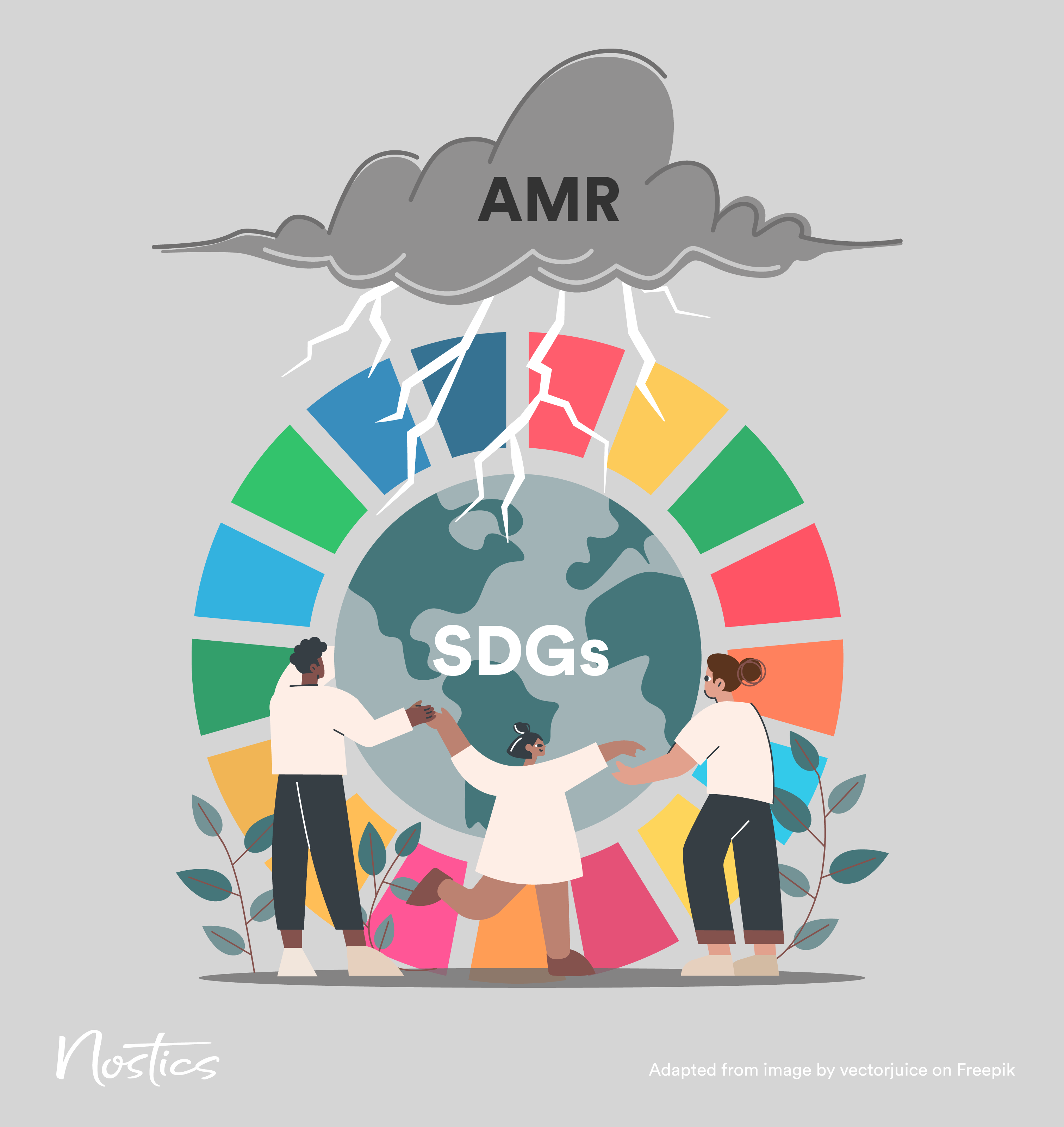The fight against antimicrobial resistance (AMR) is a monumental challenge that has far-reaching implications on our lives. AMR not only affects our health, but also has significant social, economic, and environmental consequences. To understand its impact, we can examine it within the broader context of the United Nations’ Sustainable Development Goals (SDGs).

The SDGs: A Framework for a Better World
Established in 2015, the 17 SDGs serve as a “blueprint to achieve a better and more sustainable future for all.” AMR has a direct impact on Goal 3 (Good Health & Wellbeing), which strives to ensure healthy lives and promote well-being at all ages. As the number of AMR infections continues to rise, hospitalization times and treatment costs will inevitably increase, making it harder for people to access proper care. This could significantly hinder progress in infectious disease control and jeopardize the ambitious goal of Universal Health Coverage, which seeks to provide everyone with access to safe, effective treatment and high-quality medicines without causing financial strain.
The Ripple Effect: How AMR Impacts Other Goals
The consequences of AMR don’t end with Goal 3. By 2050, AMR is predicted to force an additional 28.3 million people into extreme poverty, undermining Goal 1 (No Poverty). It also threatens Goal 2 (Zero Hunger), as infections will become more difficult to treat, making farming increasingly challenging. Furthermore, the decrease in labor supply resulting from AMR-related morbidity and mortality could endanger Goal 8 (Decent Work and Economic Growth). In fact, it is estimated that global economic output could decline by 1-3% by 2030, amounting to losses of up to a staggering $3.4 trillion.
The ‘One Health’ Approach: A Unified Front Against AMR
In order to effectively combat AMR, we must integrate and address all aspects of this multifaceted issue through a ‘One Health’ approach. The Quadripartite, comprising the World Health Organization (WHO), the World Organization for Animal Health (WOAH), the United Nations Environment Program (UNEP), and the Food and Agriculture Organization of the United Nations (FAO), is dedicated to achieving this goal. By incorporating AMR more actively into the SDGs, the Quadripartite helps countries to integrate this critical issue into their own development agendas.
The fight against antimicrobial resistance is an essential component of our journey towards a sustainable future. By recognizing and addressing the complex interplay between AMR and the SDGs, we can work together to create a healthier, more resilient world for generations to come.
Read more:
https://sdg.iisd.org/news/antimicrobial-resistance-threatens-development-sdgs-tripartite-report/
https://www.who.int/publications/i/item/9789240036024
https://www.healthdata.org/news-events/newsroom/news-releases/latest-estimates-global-anti-microbial-resistance-show-urgent
https://www.woah.org/en/preventing-antimicrobial-resistance-together-quadripartite-announces-waaw-2022-theme/


